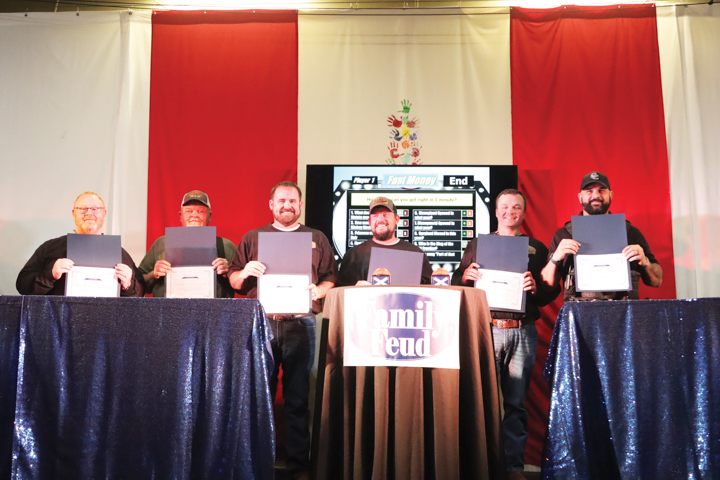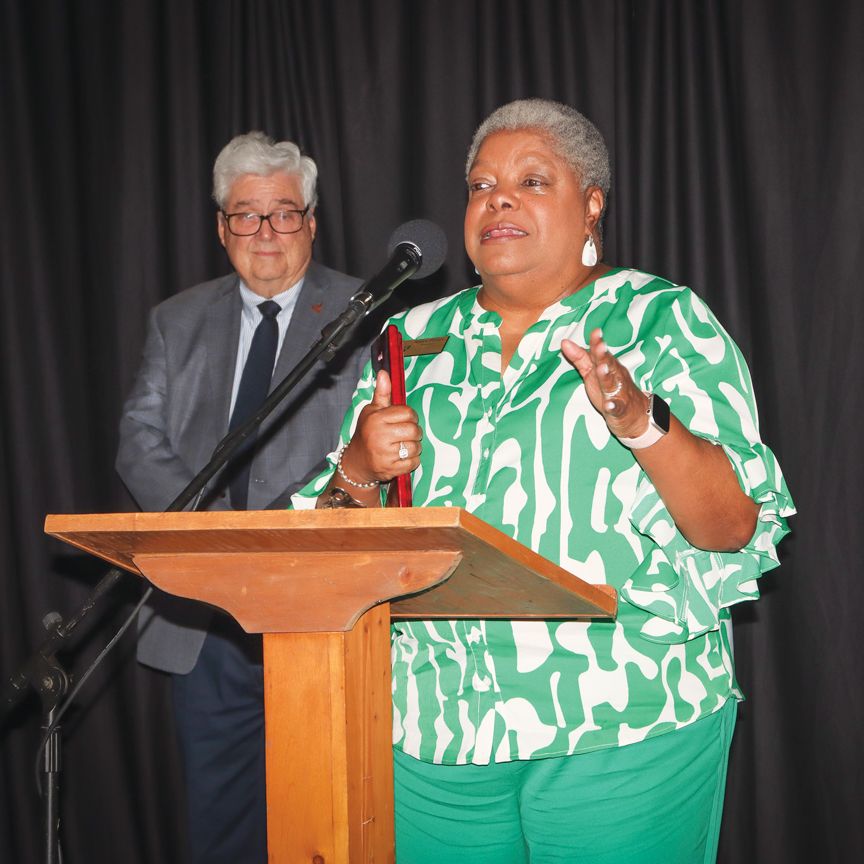Ryan Leaf, former NFL quarterback and number two overall selection in the 1998 NFL Draft, spoke July 12 at the University of Tennessee at Martin. UT Martin student-athletes as well as members of local high school sports teams attended the presentation to hear Leaf’s story of how the stress of pro-football fame led him to depression and drug addiction before spending 32 months in prison.
Leaf gained notoriety after a successful football career at Washington State University, where he led his team to its first Rose Bowl appearance in 67 years and was named a Heisman Trophy finalist in 1997 before being picked by the San Diego Chargers in 1998. However, life did not go as planned for Leaf, and he says his arrogance ultimately caused him to push everyone away until he found himself dealing with the pressures of pro-football life alone.
“I tell people I was a drug addict long before I ever took a drug,” he said. “My first drug of choice was competition. I competed at everything, and I had to win at everything. If I lost, I’d want to run it back immediately and embarrass you in the process. That’s how I won. I didn’t have a lot of friends. … I pushed a lot of people away. All I wanted to do was be a professional athlete, and I was willing to do anything … to make that happen.”
After four seasons in the NFL, Leaf eventually quit pro-football and began taking Vicodin to cope with the feeling of constant scrutiny and hatred that he felt for himself and from the larger sports community. This addiction would grow for the next eight years before he was finally arrested for stealing narcotics from the homes of people in his hometown in Montana.
After 32 months in prison and the help of many therapists, friends and supporters, Leaf now travels the country to speak with other athletes on the issues of mental health.
“There’s a stigma that exists that disallows us from having that conversation (about mental health),” he said. “Administrations don’t want to talk about it because … it’s been shown to us as an ugly truth for so long. It’s not (an ugly truth) – it’s human nature. Mental health is something that all of you have, whether you’re dealing with something problematic or whether you have good mental health at this time. Mental health is a part of our life. I was a big, strong football player.
“You can’t show weakness, … right? But having vulnerability and transparency is probably the strongest thing anybody will ever do. The strongest thing I’ve ever done is being able to stand in front of another human being and say, ‘I’m hurting. I’m struggling here, and I need some help.’”
Leaf urged those in the audience to take a look at themselves and hold themselves accountable for their own actions, rather than blaming those around them when things do not go as planned.
“If there’s anything you take away from today and institute in your life, try these three ideals: accountability, community and spirituality, three things that weren’t even in my vocabulary until (I got out of prison),” he said. “I was never accountable to anybody or anything in my whole life. I blamed the media. I blamed the NFL. I was resentful of others, of my family, the doctors. I never looked at myself. When I finally walked by my prison cell mirror and looked at myself and said, ‘Ryan, you are here because of what you did, and nobody else,’ that was freeing. You can’t blame anybody else.”
He also stressed the importance of a supportive community and a sense of spirituality to help each person through the hard times in life. While Leaf is ultimately grateful that his struggles played out on a national stage that forced him to come to terms with his actions, most will not have that spotlight and find themselves struggling alone.
“I really just had a rough patch that I had to get through, the difference was that everybody saw it and I was confronted to get help. Many of you know people who are going through similar things that no spotlight is ever shown on them and no one ever sees them, and all of a sudden, they are gone. Let’s not allow that to happen,” he said.
“These are diseases just like cancer or diabetes. If you told me that 75 percent of the people with those diseases didn’t go and get help, that would (be) crazy, but that’s what the numbers are for people who have mental health and addiction issues. They don’t go and get the help they need. It doesn’t make you less-than. It doesn’t make you weak,” Leaf added.
Leaf remained behind after the main presentation to speak privately with members of the UT Martin football team. He has now been sober for seven years. For more information, contact the UT Martin Office of Intercollegiate Athletics at 881-7660.





